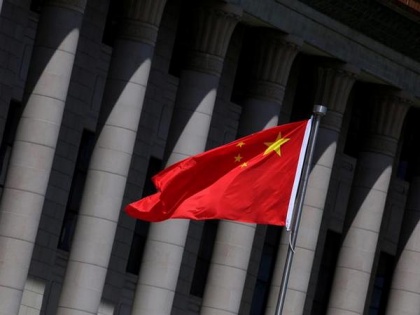Employed or jobless, frustration among China's youth growing
By ANI | Published: July 15, 2021 01:51 PM2021-07-15T13:51:29+5:302021-07-15T14:00:12+5:30
China is unable to mask the discontent brewing among both the employed and the jobless youths as the numbers of jobless persons are growing and employed find it tougher to get accustomed to working because of stressful office and economic environments.

Employed or jobless, frustration among China's youth growing
China is unable to mask the discontent brewing among both the employed and the jobless youths as the numbers of jobless persons are growing and employed find it tougher to get accustomed to working because of stressful office and economic environments.
Jianli Yang, writing in Newsweek said that the urban unemployment rate in the country hovered around 5 per cent in May 2021. It went up to 6.2 per cent in February 2020 during the coronavirus pandemic.
The issue hardly found mention in President Xi Jinping's address to the nation on the occasion of the centenary of the Chinese Communist Party two weeks ago, reported the US magazine Newsweek.
Many of the hundreds upon thousands of fresh graduates continue to sit at home, looking for jobs. The rate of unemployment for the 16-24 age group is at 13.8 per cent. Most of them do not possess the skills needed in the manufacturing sector. The labour market for skilled workers looks skewed as well.
A mismatch exists in urban areas due to discrepancies in skills and jobs. Most graduates gravitate toward the services sector which in China is recovering at a slower rate due to the pandemic. In contrast, the manufacturing sector has a faster recovery rate, but is affected by the lack of skilled workers, said Jianli.
China's statistics bureau conducted a survey of 90,000 companies this April which found that 44 per cent of industrial companies counted recruitment of skilled workers as their biggest "obstacle."
Imagine the chaos in the job market when the country is gearing up to absorb nearly 14 million new entrants into the urban job market this year. More than half of them, being graduates, may not find suitable jobs, said Jianli.
China's labour market experienced an upheaval since 2020, as millions of workers, especially migrants, found themselves jobless as factories closed down, resulting in a shift to the services industry, throwing norms and protocols of blue and white-collar jobs to the winds.
Moreover, an ageing and shrinking workforce are becoming a stumbling block as older workers retire at a faster rate than youngsters can be recruited.
A McKinsey Global Institute report found that by 2030, "220 million Chinese workers may need to transition between occupations or 30 per cent of the workforce."
The frustration of China's employment is more palpable. Employers eager for quicker economic recoveries are going in for longer working hours, coupled with tougher job targets and limited growth prospects, are taxing the employees, wrote Jianli.
Chinese technology workers are often expected to work 9 am to 9 pm six days a week, a practice so common that they call it "996".
Add to that peer pressure to indulge in the consumption of luxuries and skyrocketing prices make for a caustic concoction. Married couples find themselves unable to spare even a down payment for a small flat. Many of them delay plans to have children because they cannot afford to rear them, reported Newsweek.
Most employed people are diverting their frustrations into an online form of "protest" called "lying flat youth." It simply means doing the bare minimum to just exist.
Social media is filled with posts by these people as they exchange information about their experiences. T-shirts with these ideas sell like hotcakes.
The microblogging site Weibo also found that "61 per cent of the 241,000 participants said they want to embrace the lying flat attitude."
The Chinese government was forced to take note of the growing fad. It considers the popular movement as a threat to Xi Jinping's dream of national rejuvenation. Realizing the long-term effects of such a movement, the government has blocked certain social media chat groups.
( With inputs from ANI )
Disclaimer: This post has been auto-published from an agency feed without any modifications to the text and has not been reviewed by an editor
Open in app